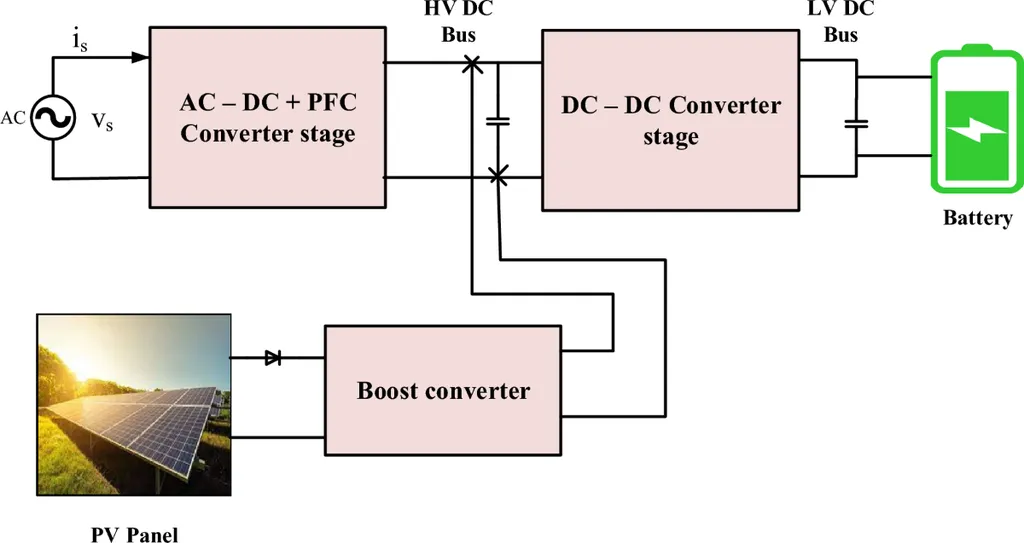In the quest for more efficient and sustainable electric vehicle (EV) charging solutions, researchers have developed a modified quadratic high-gain DC-DC converter specifically tailored for solar-powered EV charging systems. This innovation, detailed in a recent study published in the journal “IEEE Access,” promises to enhance the performance and feasibility of solar-integrated EV charging infrastructure.
The research, led by Farha Khan from the Department of Electrical and Electronics Engineering at the Birla Institute of Technology and Science, Pilani, introduces a modified quadratic boost DC-DC converter designed to achieve high voltage gain with a reduced component count and lower switching stress. This design is crucial for improving the overall efficiency of EV charging systems, particularly those powered by solar energy.
“Our goal was to create a converter that not only boosts the input voltage effectively but also operates with high efficiency and minimal stress on its components,” Khan explained. “This is particularly important for solar-powered systems, where the input voltage can vary significantly based on weather conditions and time of day.”
The study presents a comprehensive analysis of the converter’s steady-state operations and inductor current conduction states, along with a detailed mathematical analysis considering non-ideal conditions. The performance of the proposed converter was initially validated through MATLAB/Simulink simulations for a 3-kW power level. Subsequently, the converter was integrated into a PV-powered EV battery charging architecture.
One of the key innovations in this research is the implementation of a feedforward neural network-based Maximum Power Point Tracking (MPPT) algorithm. This algorithm is designed to extract solar power effectively, ensuring that the charging system operates at peak efficiency. Additionally, a two-stage constant current (CC) charging approach was developed to enhance battery health by dynamically adjusting the charging current based on the battery’s state of charge (SOC).
To further validate the system’s performance, simulations and real-time implementation were conducted on the OPAL-RT (OP-4512) platform under Controller Hardware-in-the-Loop (CHIL) with a Texas Instruments (TI-F28379D) controller. A 100 W scaled-down converter prototype was also built to test its feasibility and efficacy under diverse conditions, achieving an experimental efficiency of 95.6%.
“The resemblance among the experimental and simulation results, together with the results achieved in the CHIL environment, confirms the practical feasibility of the converter,” Khan noted. “This establishes our proposed system as a prospective solution for intelligent solar-integrated EV charging infrastructure.”
The research highlights the potential of this modified quadratic high-gain DC-DC converter to shape future developments in the field of solar-powered EV charging. By improving the efficiency and reliability of these systems, the technology could accelerate the adoption of EVs and contribute to a more sustainable energy future.
As the energy sector continues to evolve, innovations like this one will play a crucial role in meeting the growing demand for clean and efficient charging solutions. The study’s findings, published in the journal “IEEE Access,” provide a solid foundation for further research and development in this exciting and rapidly advancing field.

